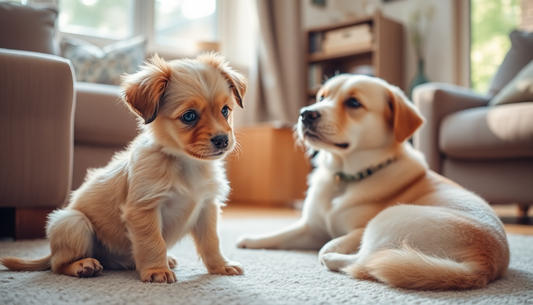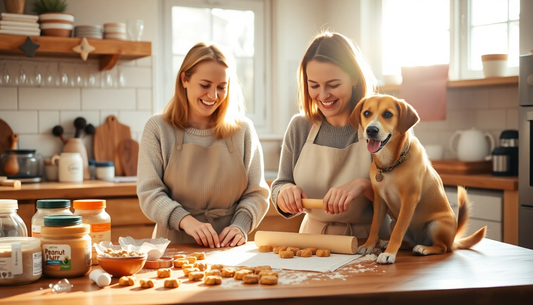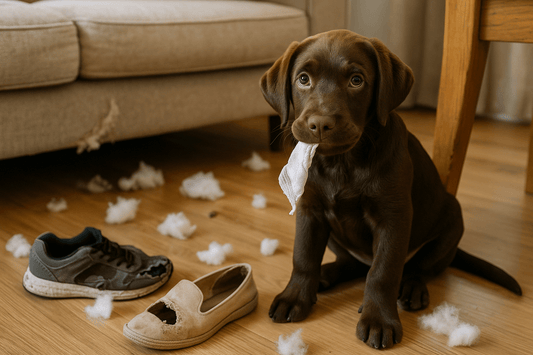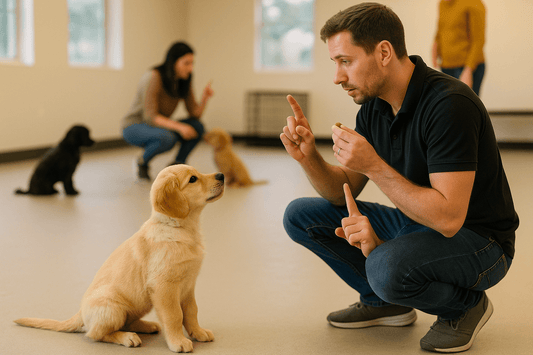If you've come home to find your favorite shoes destroyed, couch cushions shredded, or wooden furniture gnawed beyond recognition, you're not alone. Puppy chewing is one of the most common (and frustrating) challenges new pet parents face. But don't despair – with the right approach, you can redirect this natural behavior and save your belongings!
Why Do Puppies Chew Everything?
Understanding the 'why' behind destructive chewing is the first step to solving it:
- Teething relief – Puppies lose their baby teeth between 3-6 months, and chewing helps soothe sore gums
- Exploration – Puppies use their mouths to investigate their world
- Boredom or anxiety – Destructive chewing often increases when puppies are left alone or understimulated
- Natural instinct – Chewing is a normal dog behavior that serves important purposes
Immediate Damage Control
When you catch your puppy in the act:
- Stay calm – Yelling or punishment will only create fear and anxiety
- Redirect immediately – Remove the forbidden item and replace it with an appropriate chew toy
- Praise the switch – When your puppy chews the right thing, reward them enthusiastically
- Never chase – If your puppy runs away with something, don't chase them – this turns it into a fun game
Prevention is Key
The best strategy is preventing destructive chewing before it starts:
Puppy-Proof Your Home
- Put shoes, clothing, and valuable items out of reach
- Use bitter apple spray on furniture legs and baseboards
- Block access to areas with tempting items
- Secure electrical cords and remove toxic plants
Provide Appropriate Alternatives
Give your puppy plenty of acceptable things to chew:
- Variety is important – Rotate different textures like rope toys, rubber toys, and natural chews
- Size matters – Choose chews appropriate for your puppy's size and chewing strength
- Interactive toys – Puzzle toys and treat-dispensing toys keep minds busy
- Natural options – Bully sticks, antlers, and raw bones (supervised) can satisfy heavy chewers
Address the Root Causes
Combat Boredom
- Increase daily exercise – A tired puppy is a well-behaved puppy
- Provide mental stimulation through training sessions and puzzle games
- Rotate toys regularly to maintain interest
Ease Teething Discomfort
- Offer frozen washcloths or ice cubes for soothing relief
- Provide softer chews during peak teething periods
- Consider teething-specific toys designed for comfort
Reduce Separation Anxiety
- Practice short departures and gradually increase duration
- Leave special chew toys that only come out when you're gone
- Create positive associations with alone time
Training Techniques That Work
The 'Leave It' Command
Teaching a solid 'leave it' command is invaluable. Start with treats in your closed fist, and only reward when your puppy stops trying to get them and looks at you instead.
Positive Reinforcement
Always reward good chewing behavior. When you see your puppy chewing an appropriate toy, praise them and offer a high-value treat. This reinforces that chewing the right things brings good things!
What NOT to Do
- Don't give old shoes or clothing as toys – puppies can't distinguish between old and new
- Avoid punishment-based methods – they can increase anxiety and worsen the problem
- Don't leave your puppy unsupervised with inappropriate items
- Never take something away without offering an alternative
When to Seek Professional Help
If destructive chewing continues despite consistent training, or if it's accompanied by other behavioral issues, consider consulting a professional dog trainer or veterinary behaviorist. Sometimes underlying anxiety or medical issues need to be addressed.
Remember: This Too Shall Pass
Most destructive chewing behaviors improve significantly as puppies mature, usually by 12-18 months of age. With patience, consistency, and the right approach, you can guide your puppy toward appropriate chewing habits while preserving your sanity (and your belongings)!
The key is staying one step ahead, providing plenty of appropriate outlets, and remembering that your puppy isn't being destructive out of spite – they're just being a normal, curious puppy learning about their world.








